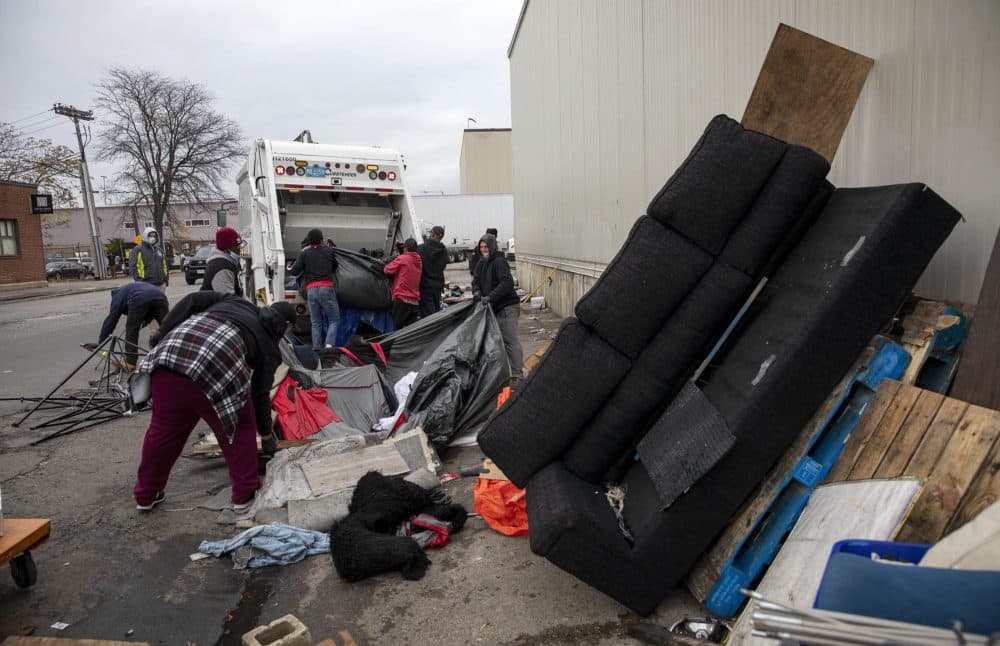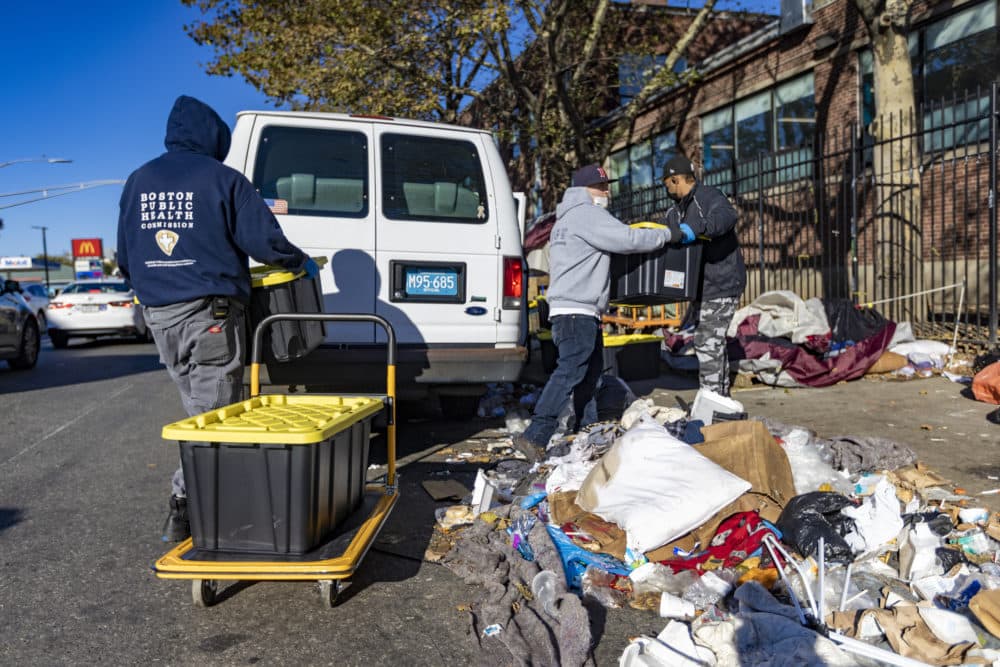Advertisement
ACLU files suit over tent encampment removal

The removal of a sprawling tent encampment in Boston is now the subject of a lawsuit.
The American Civil Liberties Union of Massachusetts' suit filed Friday alleged the city unlawfully removed tents near the intersection of Massachusetts Avenue and Melnea Cass Boulevard without making sure people had adequate housing options. It also said the city is destroying people's personal property as it clears the encampment, as well as threatening criminal charges against those who refuse to move.
"The constitution and federal and state disability laws require the city to have a process in place to individually evaluate persons that they're displacing to determine whether, in fact, the shelter space that is available is suitable for that affected person," said Kevin Prussia, an attorney with the law firm WilmerHale who helped file the lawsuit. "Also a problem is the disturbing fact that our clients have had their personal property seized and destroyed when the city said they wouldn't do that."
Acting Mayor Kim Janey last month declared the area a public health emergency, and workers soon after began removing tents. Janey said tents would only be cleared after 48-hours' notice, and that people would be offered alternate shelter, including storage for their belongings. Janey said those who refused to move could be subject to arrest on disorderly conduct charges.
The suit, which named Janey and other city officials, mentioned recent tent clearings where people's belongings were cleared and crushed in city garbage trucks.
The suit, which named three plaintiffs and was filed on behalf of the hundreds of people living in the encampment, also claimed the city should not be threatening criminal charges. The complaint mentioned the special court session that began operating Monday inside the Suffolk County House of Correction. The session was designed to hear the cases of those with outstanding criminal warrants who frequent the encampment.
"As a result of these pronouncements, people living in the area — who often do not know whether they have outstanding warrants, since many do not receive summonses or other written notice of court hearings precisely because of their homelessness — are living in fear of being seized at any time," the complaint read.
The complaint seeks a temporary restraining order barring the city from displacing people or taking their property without ensuring they have adequate shelter. It asked that people be allowed to return to the encampment unless there were housing options that met their individual needs.
Advertisement
"We can't use threats of criminal arrest and prosecution to tell people to leave who literally have nowhere else to go that day," attorney Prussia said. "That's against the law. And more importantly, that's doesn't reflect who we are as a society. I think all of us are heartbroken by what has occurred at 'Mass. and Cass,' and we want to do something about it. But we have to do it the right way."

When Janey was asked about the suit at a press briefing Friday she said that while she cannot comment on litigation, the city's approach has been a "public health approach" that included providing notice, storage and beds.
She said about two dozen tents were removed, and about 60 people were placed in treatment, shelter, transitional housing or went to private homes. Janey emphasized the city is not moving people or their belongings without first identifying a place for them to go.
"We are working hard to match the individual needs of the people living on the streets, living in tents, with the appropriate treatment and shelter options available," Janey said.
